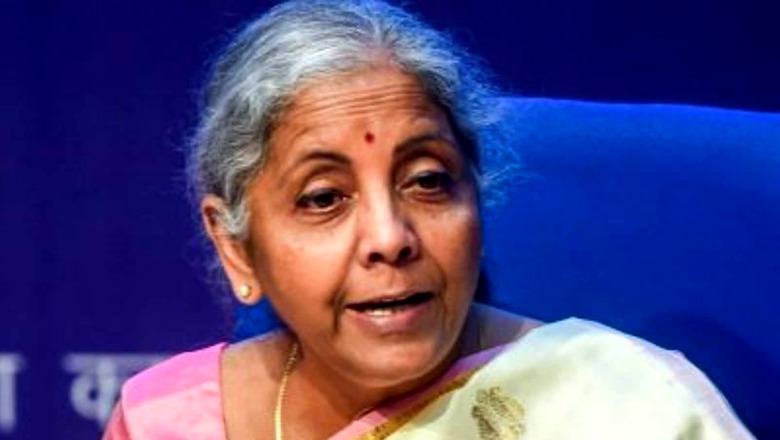
views
Finance Minister Nirmala Sitharaman’s Budget is clearly focused on capex-driven growth, even if it comes at the cost of a higher deficit. But what is surprising is the FM could have gone for growth even without declaring a large fiscal deficit. This is because the Budget seriously underestimates tax revenues for the second year in a row.
The Budget itself recognises some of the underestimations. In the last year’s budget, the Centre’s net tax revenue growth in the current year — FY22 — was estimated to grow by 8.5 per cent to Rs 15.45 trillion. Today, in the revised estimates for FY22, the Budget admits tax revenues are likely to grow by 24 per cent to Rs 17.65 trillion.
Now even this is an underestimation, and here’s why: For the April-December period, the net tax revenue of the Centre is at Rs 14.74 trillion, up 50 per cent from Rs 9.6 trillion in the same period in 2020.
Now, for Jan-March 2021, the government collected net tax revenue of Rs 4.6 trillion. Even assuming the government collects the same amount in Jan-March of 2022, the net tax revenue to the Centre in the current year will be Rs 19.3 trillion and not 17.65 trillion as mentioned in the revised estimates. And if tax revenues were to grow in Jan-March by the same pace as in the first nine months, the net tax revenue this year may easily go over Rs 20 trillion, which means a good Rs 3 trillion more than the revised estimates!
If the FY22 net tax revenue is higher by Rs 3 trillion, it stands to reason that next year’s net tax revenue may also be at least Rs 3 trillion more due to the base. Indeed, the government has assumed a net tax revenue growth of 9.6 per cent.
Yes, next year, the government revenues may be impacted by the cut in excise duties on fuels. But if corporate and income tax and GST were to grow at 1.3-1.4 times the nominal GDP (which is seen growing by 13 percent), then next year’s net tax revenue can easily grow by 15 per cent. This means next year’s net tax revenues have been underestimated by at least Rs 4 trillion.
At the press conference, the finance minister and the key secretaries argue they are being realistic. The FM added she prefers to be a little conservative and over-achieve. Now, an underestimation of revenues by Rs 4 trillion or by 25 per cent is not conservative, but downright harmful.
By estimating tax collections lower, the government has probably overestimated the deficit. It has calculated the fiscal deficit at Rs 16.65 trillion against market expectations of Rs 15.5 trillion.
Likewise, the government’s market borrowing has been estimated at Rs 14.3 trillion, versus market estimates of Rs 12 trillion at the most. The spectre of the government selling nearly Rs 35,000 crore of bonds every week from April has scared the bond market, and the 10-year bond yields have shot up from 6.68 per cent pre-Budget to 6.85 per cent post-Budget presentation.
This will only increase the borrowing cost for the government and indeed for the entire economy since corporate loans are priced about 30-50 basis points above government bonds. The market was hoping there would be some announcement of including Indian bonds in the global indexes, but that was scotched in the press conference by the revenue secretary Tarun Bajaj.
Some More Puzzling Questions Remain
The tax collections of last year were used up in recognising the government’s dues to the Food Corporation. This year some of the excess collections are being used up for paying the dues of Air India. The market is now worried if next year’s likely higher-than-expected tax collections will also be used up to correct some unrecognised dues.
The short point, the finance ministry would do well to explain the rationale behind its persistent under-estimation of taxes. Why aren’t they recognising an obvious increase in India’s tax-to-GDP ratio?
Do they know something the market doesn’t know? Or if it is plain conservatism, aren’t they worried that the government and the economy are paying the price for this unwarranted conservatism?
Read all the Latest Opinions here




















Comments
0 comment